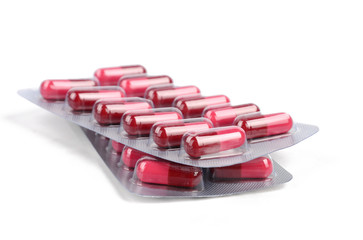- Statins and their role in cholesterol management
- How statins work: 3-hydroxy-3-methylglutaryl-coenzyme A (HMG CoA) reductase inhibition
- The potential link between statins and testosterone levels
- Overview of the 2017 review on statins and sexual dysfunction
- The 2019 systematic review and meta-analysis on statins and erectile health
- Possible mechanisms: Statins, blood vessel dilation, and vascular blood flow to the penis
- Statins and their potential to aggravate existing erectile dysfunction (ED)
- Conflicting evidence: Studies suggesting both improvement and impairment of erectile function
- The need for more research on the relationship between statin therapy and erectile dysfunction
Statins and their role in cholesterol management
Statins are medications commonly prescribed to lower cholesterol levels, reducing the risk of cardiovascular disease. They help by inhibiting the enzyme 3-hydroxy-3-methylglutaryl-coenzyme A (HMG CoA) reductase, which plays a key role in cholesterol production in the liver.
How statins work: 3-hydroxy-3-methylglutaryl-coenzyme A (HMG CoA) reductase inhibition
Statins inhibit the HMG CoA reductase enzyme, thus limiting cholesterol biosynthesis. By reducing cholesterol levels, statins have been shown to lower the risk of heart attacks, strokes, and other cardiovascular complications.
The potential link between statins and testosterone levels
It has been reported that statin therapy may reduce testosterone levels and aggravate symptoms of erectile dysfunction (ED). This is because statins block HMG CoA reductase at an early stage of cholesterol biosynthesis, potentially affecting the formation of testosterone, a hormone crucial for sexual function.
Overview of the 2017 review on statins and sexual dysfunction
A 2017 review found that statins did not increase men's risk of sexual dysfunction. However, researchers agreed that more studies are needed to better understand the relationship between statins and sexual health.
The 2019 systematic review and meta-analysis on statins and erectile health
In a 2019 systematic review and meta-analysis, it was stated that statins might actually improve erectile function. Statins achieve several end goals that can boost erectile health, such as helping blood vessels dilate properly and improving vascular blood flow.
Possible mechanisms: Statins, blood vessel dilation, and vascular blood flow to the penis
Researchers believe that statins may work to improve erectile function by helping blood vessels dilate properly and improving vascular blood flow to the penis. This is particularly relevant for men with erectile dysfunction, as restricted blood flow to the penis is a common cause of the condition.
Statins and their potential to aggravate existing erectile dysfunction (ED)
 While ED is not a widely reported side effect of statins, some case reports and clinical trial evidence have suggested that statins can cause ED. However, more research is needed to determine if this is a common issue and if so, how statins may contribute to the development of ED.
While ED is not a widely reported side effect of statins, some case reports and clinical trial evidence have suggested that statins can cause ED. However, more research is needed to determine if this is a common issue and if so, how statins may contribute to the development of ED.
Conflicting evidence: Studies suggesting both improvement and impairment of erectile function
The relationship between statin therapy and erectile dysfunction is not entirely clear.Some studies suggest that statins may impair erectile function, while others show improvement.
For example, atorvastatin has been associated with increased erectile dysfunction, while rosuvastatin showed no effect.
Interestingly, most participants experienced improvement in erectile function within 4–6 weeks after taking atorvastatin as a daily maintenance dose.
The need for more research on the relationship between statin therapy and erectile dysfunction
In conclusion, the relationship between statins and erectile dysfunction remains uncertain. While some studies suggest that statins may impair erectile function, others indicate that they may actually improve it. More research is needed to fully understand the relationship between statins and erectile dysfunction and to establish whether statins may cause or aggravate ED in some individuals.
- cialis 20mg filmtabletten 8 st
- does sildenafil increase sperm count
- is viagra for all ages
- can you use trimix and viagra together
- can you take nitric oxide with viagra?
- what is the va rating for erectile dysfunction
- what chemical does viagra release?
- can i use viagra with caverject?
- who is a good candidate for viagra?
- does viagra help low testosterone?
- deviate sexual intercourse definition
- effectiveness of 20mg sildenafil for ed.
- can doctors fix erectile dysfunction?
- how long before should you take sildenafil?
- erektil dysfunktion. erektila komplikationer.